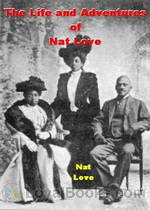|
Books Should Be Free Loyal Books Free Public Domain Audiobooks & eBook Downloads |
|
|
Books Should Be Free Loyal Books Free Public Domain Audiobooks & eBook Downloads |
|
Top Authors |
|---|
|
Book type:
Sort by:
|
By: Myrtle Reed (1874-1911) | |
|---|---|
 Lavender and Old Lace
Lavender and Old Lace
“Jane Hathaway and her niece, Ruth Thorne, have never met. Jane invites Ruth for a visit, but leaves before Ruth comes. Ruth agrees to come to Jane for quiet and rest. When Ruth arrives, the maid gives her a letter from her aunt. In the letter, Aunt Jane does not tell Ruth anything about her trip abroad but insists that Ruth light an oil lamp in the attic each night. Very soon, the all together forgotten past and the steady present are united.” | |
 Old Rose and Silver
Old Rose and Silver
The novel follows the lives of Rose and her widowed Aunt, Madame Francesca Bernard, along with young visitor and cousin Isabel, whose lives are changed by the return of an old friend and neighbour Colonel Kent, and his grown son, Allison. Other characters that help shape their lives in significant ways are the Crosby twins, unconventional and uninhibited youths that set society at naught, and an unconventional doctor who specializes in the impossible. Through the limited "wide-scope" descriptions... | |
By: Plague Ship (1912-2005) | |
|---|---|
 Voodoo Planet
Voodoo Planet
The sequel to Plague Ship, Voodoo Planet finds the Solar Queen banned from trade and starting her supposed quiet two-year stint as an interstellar mail carrier. But instead her crew accepts a visit to the safari planet of Khatka, where they find themselves caught in a battle between the forces of reason and the powers of Khatka’s mind-controlling wizard. | |
By: Delmer Eugene Croft | |
|---|---|
 Supreme Personality
Supreme Personality
Life is self-realization. Every birth is divine. We are born anew every morning. My wish is that you may catch the gleam, be freed from limitations and enter upon your boundless possibilities. To bring you into the throne-room of your being, that you may awaken in self-realization, is why I have prepared this course of lessons. Should you give five minutes a day to them, in a year you will know the joy there is in Life, in Power, and in Service. (from the text) | |
By: Nat Love (1854-1921) | |
|---|---|
 The Life and Adventures of Nat Love, Also Known As Deadwood Dick
The Life and Adventures of Nat Love, Also Known As Deadwood Dick
Nat Love was born a slave, emancipated into abject poverty, grew up riding the range as a cowboy and spent his maturity riding the rails as a Pullman Porter. For me, the most amazing thing about him is that despite the circumstances of his life, which included being owned like a farm animal solely because of the color of his skin and spending later decades living and working as an equal with white coworkers, he was an unrepentant racist! Convinced that the only good Indian was a dead one, and that... | |
By: Fay Inchfawn (1880-1978) | |
|---|---|
 The Verse-Book of a Homely Woman
The Verse-Book of a Homely Woman
Published by the Religious Tract Society in London, The Verse-Book of a Homely Woman is a collection of domestic, spiritual, and fanciful poems from the point of view of a woman, a housewife, and a Christian. The natural, supernatural, and solidly mundane are mixed together as well as separated into two parts: Indoors and Outdoors. | |
By: Louis Couperus (1863-1923) | |
|---|---|
 The Hidden Force A Story of Modern Java
The Hidden Force A Story of Modern Java
| |
 The Twilight of the Souls
The Twilight of the Souls
| |
 Dr. Adriaan
Dr. Adriaan
| |
 Majesty A Novel
Majesty A Novel
| |
By: Frank L. Packard (1877-1942) | |
|---|---|
 The Adventures of Jimmie Dale
The Adventures of Jimmie Dale
Frank Lucius Packard (February 2, 1877 – February 17, 1942) was a Canadian novelist born in Montreal, Quebec. He worked as a civil engineer on the Canadian Pacific Railway. He later wrote a series of mystery novels, the most famous of which featured a character called Jimmie Dale. Jimmie Dale is a wealthy playboy by day, with a Harvard education and membership to New York City’s ultra-exclusive private club St. James. But at night he puts on a costume and becomes The Grey Seal, who enters businesses or homes and cracks safes, always leaving a diamond shaped, grey paper “seal” behind to mark his conquest, but never taking anything... | |
 The White Moll
The White Moll
Frank Lucius Packard (February 2, 1877 – February 17, 1942) born in Montreal, Quebec, was a Canadian novelist. Packard is credited with bridging the gap from the “cozy” style mysteries to the more gritty, hard-boiled style of such writers as Dashiell Hammet and Raymond Chandler. Packard also wrote a series of novels, beginning in 1917, featuring Jimmie Dale. A wealthy playboy by day, at night, Jimmie becomes a crimefighter “The Gray Seal” complete with mask and secret hide-out, “The Sanctuary”... | |
By: Fanny Burney (1752-1840) | |
|---|---|
 Cecilia: Memoirs of an Heiress
Cecilia: Memoirs of an Heiress
The plot of Cecilia revolves around the heroine, Cecilia Beverley, whose inheritance from her uncle comes with the stipulation that she find a husband who will accept her name. This proves impossible, and she gives up her fortune to marry for love. Jane Austen referred to Cecilia and other novels in her novel, Northanger Abbey: “’And what are you reading, Miss — ?’ ‘Oh! It is only a novel!’ replies the young lady, while she lays down her book with affected indifference, or momentary shame... | |
 Evelina
Evelina
In this epistolary novel, we find a young woman named Evelina, who was raised in rural seclusion until her eighteenth year because of her uncertain parentage. Through a series of harrowing and humorous events that take place in London and an English resort town, Evelina learns how to navigate the complex layers of 18th century society and earn the love of a distinguished and honorable nobleman. This comedy of manners often satirizes the society in which it is set; Evelina is a significant precursor to later works by Jane Austen and Maria Edgeworth, whose novels explore many of the same issues. (from Evelina’s wikipedia entry, modified by ettelocin) | |
By: Frances Burney (1752-1840) | |
|---|---|
 The Wanderer
The Wanderer
This is the fourth and final novel by Fanny Burney, the author of Evelina, Cecilia, and Camilla. "Who is "Miss Ellis?" Why did she board a ship from France to England at the beginning of the French revolution? Anyway, the loss of her purse made this strange "wanderer" dependent upon the charity of some good people and, of course, bad ones. But she always comforts herself by reminding herself that it's better than "what might have been..." This is not only a mystery, not at all. It's also a romance which reminds readers of novels by Jane Austen... | |
By: Fanny Burney (1752-1840) | |
|---|---|
 The Diary and Letters of Madame D'Arblay — Volume 1
The Diary and Letters of Madame D'Arblay — Volume 1
| |
 Brief Reflections relative to the Emigrant French Clergy
Brief Reflections relative to the Emigrant French Clergy
| |
By: Warren Hilton (1874-?) | |
|---|---|
 Initiative Psychic Energy
Initiative Psychic Energy
Learn how to accomplish your goals through increasing your mental power, avoiding energy drains, and becoming more mentally efficient. | |
 The Trained Memory Being the Fourth of a Series of Twelve Volumes on the Applications of Psychology to the Problems of Personal and Business Efficiency
The Trained Memory Being the Fourth of a Series of Twelve Volumes on the Applications of Psychology to the Problems of Personal and Business Efficiency
| |
 Psychology and Achievement
Psychology and Achievement
| |
 Power of Mental Imagery Being the Fifth of a Series of Twelve Volumes on the Applications of Psychology to the Problems of Personal and Business Efficiency
Power of Mental Imagery Being the Fifth of a Series of Twelve Volumes on the Applications of Psychology to the Problems of Personal and Business Efficiency
| |
By: Elizabeth von Arnim (1866-1941) | |
|---|---|
 The Enchanted April
The Enchanted April
It’s a dreary February in post-World War I London when Mrs. Wilkins spots an advertisement in The Times for a small Italian castle for rent in April. She sees another member of her women’s club, Mrs. Arbuthnot, reading the same advertisement and manages to convince her that the two of them should rent it. Both are miserable and lonely in their marriages. They can’t afford the cost of the villa, San Salvatore, on their own and must advertise for two others, eventually recruiting an elderly widow named Mrs... | |
 The Princess Priscilla's Fortnight
The Princess Priscilla's Fortnight
The Princess Priscilla of Lothen Kunitz finds court life stifling and runs away to England with the elderly court librarian. Her intention is to live a pure and simple life filled with good works. But life among ordinary people in an English village is not what she expects it to be... (Introduction by Tabithat) | |
By: Elizabeth Von Arnim (1866-1941) | |
|---|---|
 Vera
Vera
Vera (1921) by Elizabeth von Arnim is a black comedy based on her disastrous second marriage to Earl Russell: a mordant analysis of the romantic delusions through which wives acquiesce in husbands' tyrannies. In outline the story of this utterly unromantic novel anticipates DuMaurier's Rebecca. Naive Lucy Entwhistle is swept into marriage by widower, Everard Wemyss. His mansion "The Willows" is pervaded by the spectre of his dead wife Vera, with whom Lucy becomes obsessed. ... Here the servants are partisan for both wives, and lose no opportunity to disrupt Everard's unctuous, oppressive household routines... | |
By: Elizabeth von Arnim (1866-1941) | |
|---|---|
 The Pastor's Wife
The Pastor's Wife
Written by an author born in Australia, grew up in England, married in Germany, and then flew to the United States. A tale about a young woman, freed up from the bonds of her family life, to wonder all around in search of all things feminist. The story seems somewhat autobiographical, surrounded in disillusionment and humor. Written on the eve of World War I and just back from married life in Germany. | |
 Elizabeth and her German Garden
Elizabeth and her German Garden
Elizabeth and Her German Garden is a novel by Elizabeth von Arnim, first published in 1898; it was very popular and frequently reprinted during the early years of the 20th century. The story is a year's diary written by the protagonist Elizabeth about her experiences learning gardening and interacting with her friends. It includes commentary on the beauty of nature and on society, but is primarily humorous due to Elizabeth's frequent mistakes and her idiosyncratic outlook on life. She looked down upon the frivolous fashions of her time writing "I believe all needlework and dressmaking is of the devil, designed to keep women from study... | |
By: Elizabeth Von Arnim (1866-1941) | |
|---|---|
 Christopher and Columbus
Christopher and Columbus
| |
 In the Mountains
In the Mountains
| |
By: Elizabeth von Arnim (1866-1941) | |
|---|---|
 Benefactress
Benefactress
Anna Estcourt, twenty-five and beautiful, is the penniless ward of her distant brother and his exasperating wife. Turning down all offers of marriage, scornful at the thought of leaning on a man for help and comfort, she thinks only of the independence which seems an impossible dream. But out of the blue Uncle Joachim, her mother's brother, leaves her a handsome property in Germany. Her longed for independence is within her grasp, and though it's a rocky beginning with the locals, she loves her new home... | |
By: Elizabeth Von Arnim (1866-1941) | |
|---|---|
 Fräulein Schmidt and Mr. Anstruther
Fräulein Schmidt and Mr. Anstruther
| |
 The Solitary Summer
The Solitary Summer
| |
By: Ludwig van Beethoven (1770-1827) | |
|---|---|
 Selected Letters of Beethoven
Selected Letters of Beethoven
A selection of Beethoven’s letters from the compilation by Dr. Ludwig Nohl and translated by Lady Grace Wallace. | |